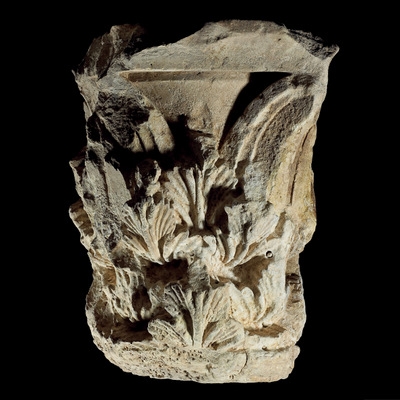The native wealth of
Afghanistan - rich in gold, copper, tin, lapislazuli, garnet,
and carnelia - did not go unnoticed by its neighbors. In the
sixth century BC, the region fell to the Persians. It is
through them that we first learn the local name of the lands of
northern Afghanistan: Bactria. In the fourth century BC,
Alexander the Great and his army conquered Bactria, and his
successors established a Hellenized government there, bringing
Greek language, art, and religion to the area. (fig.
2) With the exception of some beautifully minted coins,
however, tangible traces of this Greco-Bactrian culture
remained elusive until recently. The subsequent history of
Bactria is known from several sources: Chinese chronicles,
which describe waves of nomads from the northern steppes moving
into the region; Indian accounts, which tell of the rise of
independent states; and local coinage that
documents kings of the Kushan Dynasty (1st- 3rd centuries AD).
The Kushans, who are said to have been descendants of the
invading nomads, established an empire reaching from southern
Bactria to the Ganges River Valley in
India.
BALKH, the capital of Bactria, was described in antiquity as
"Balkh the beautiful, Balkh the mother of all cities."
It was destroyed by Mongols in 1220, but an account by Marco
Polo suggests its former grandeur:
Balkh is a noble city and very large. Formerly it was
nobler and larger; it was the most vast and beautqrul city in
the region, but the Tartars and other people often ravaged and
cruelly damaged it. Because l tell you that formerly there were
here a number of beautyful palaces and beauthful houses of
marble; and still there are, but destroyed and ruined.
And I tell you that in this city King Alexander the Great
took as his wife the daughter ty Darius, king of the Persians,
according to the people of the city. - THE DESCRIPTION OF
THE WORLD, 1298
National Gallery of Art,
Washington

